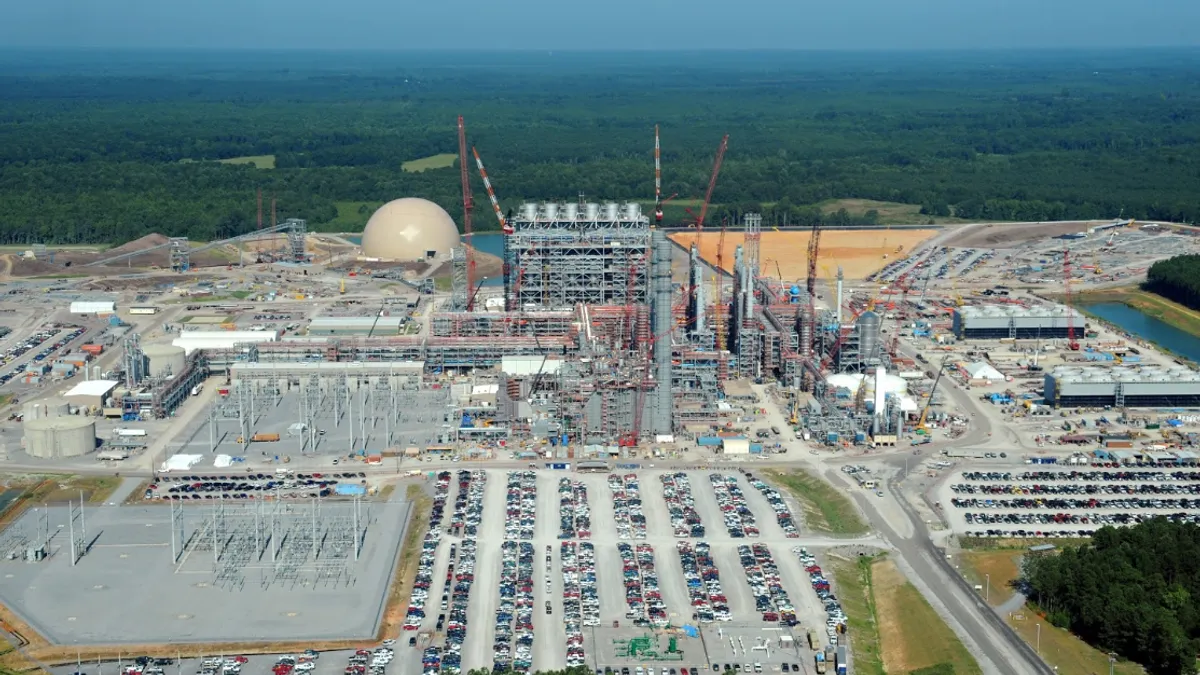Dive Brief:
- Scientists at the University of California at Berkeley are working to make carbon capture and sequestration (CCS) a more cost-effective concept and have developed a metal-organic framework which can help limit emissions while using half the energy of conventional CCS technologies.
- The material has been modified with nitrogen compounds called diamines, and can be tuned to remove carbon dioxide from a variety of sources including power plants.
- While the concept of carbon capture has been around for years, the cost and equipment necessary have made it a difficult proposition and only one facility is currently operating with CCS technology.
Dive Insight:
Amid rumors that the U.S. Environmental Protection Agency has dropped carbon capture and sequestration requirements from its performance standards for new power plants, Co.Exist points out that researchers at UC Berkeley may have found a way to reduce the cost of the process.
Scientists at the school are calling it a "major leap forward in carbon-capture technology," creating a so-called metal-organic framework which could be used to pull CO2 out of the air on a submarine or from the emissions of a coal facility.
“This material is unique in that it binds CO2 in a cooperative mechanism,” Jeffrey Long, a UC Berkeley professor of chemistry and faculty senior scientist at Lawrence Berkeley National Laboratory, said in a press release on the discovery. “When the first CO2 starts to adsorb at a very specific pressure, all of a sudden it facilitates more CO2 adsorption, and the MOF rapidly saturates. That is really a different property from any other CO2 adsorbent based on amines."
Long explained that the new material could cut the energy needed for carbon capture in half, as well as shrinking the size of CCS technology. “With these new materials, that unit could be much smaller, making the capital costs drop tremendously as well as the operating costs," he said.
Inside EPA reported last week that regulators may have dropped CCS requirements from performance standards for new generation, over worries that the requirements would not stand up in court as being well-tested or readily available. There is only one CCS facility is currently operating, in Saskatchewan.















